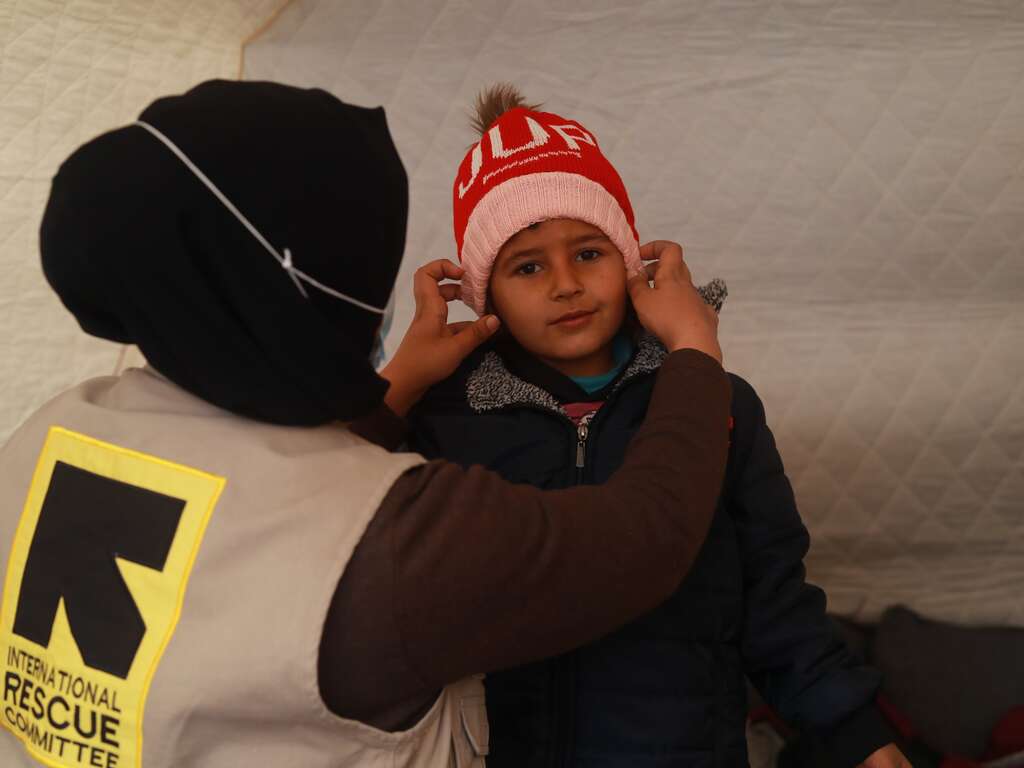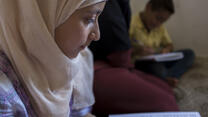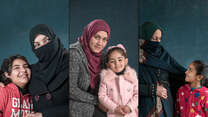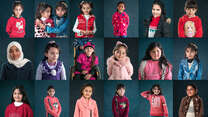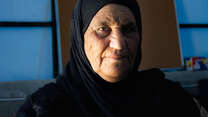In 1984, Raesa,* just 14 years old, left her family in Jordan and moved to Syria with her husband to start a new life.
When civil war broke out 28 years later, Raesa was forced to flee with her children, triplets, and seek refuge back in her own country.“We left Syria through the village of Tell Shihab and went to Ramtha [in Jordan]”, Raesa says, who is now the sole breadwinner for her family. Her husband decided to stay behind with his second wife and their family.
After reaching the city of Ramtha, in northwestern Jordan, Raesa, her daughter and her two sons made their way to Zaatari refugee camp, near the town of Mafraq. But it wasn’t the refuge they hoped for: as a Jordanian citizen, Raesa could not stay in the camp with her children, who were then 17 years old. She refused to leave them and so the family continued on to Irbid in the north, where Raesa was able to rent a small house.
Some 630,000 displaced Syrians have settled in Jordan after escaping brutal violence in their war-torn country. More than 80 percent live outside formal refugee camps, making it extremely difficult for them to access basic services like food and health care. As the conflict drags on into its fifth year, these refugees are finding it more and more difficult to support their families as they deplete their savings – especially since they are not allowed to hold work permits.
Even Raesa had a hard time getting by in her native country. She soon had little money left for rent, food and basic necessities, but no luck finding work. Her inability to read and write limited her employment prospects, and the chronic kidney inflammation she suffers from made many jobs too strenuous for her. The family was forced to live on the food vouchers her children received from the United Nations refugee agency – an income of barely $40 a month.
Cash assistance
When she moved to Irbid, Raesa set about registering with aid agencies and searching for more support. One day she found the International Rescue Committee’s women’s centre, where IRC aid workers referred her to a counsellor to help her cope with war trauma and financial stress, and also arranged for her to receive cash assistance in the form of a reloadable debit card.
“I told them about my situation, and when they gave me the ATM card, I swear I couldn’t believe it,” Raesa recalls.
This emergency support, which ranges from $170-254 per household per month, is helping thousands of the most vulnerable refugees – like Raesa – to put a roof over their families’ heads and meet other basic needs. Because the assistance comes in the form of cash, refugees can spend it on the items they need the most: in Raesa’s case, food, cooking utensils and warm bedding.
The IRC also invites refugees to join discussion groups where financial experts help them learn how to make their money stretch further and to save for unexpected expenses.
In addition, the IRC centre offers a range of other educational opportunities and recreational activities for women and girls. One day, when Raesa took her daughter there to sign up for a beauty course, IRC staff members saw her waiting and encouraged her to register herself for a literacy course.
“At the beginning I was shy,” says Raesa. “But then I decided, ‘Yes I’m going to the literacy classes.’”
Although classes in sewing, crochet, knitting and handicrafts were also on offer, Raesa decided to focus on learning how to read and write.
“I was very happy to see her attending the courses, and see that she’s improving and moving forward,” says Aysha Aby Ayash, an IRC counsellor at the women’s centre.
“When I started going to the counselling sessions and discussion groups, things changed,” agrees Raesa, who says she is now finding it much easier to cope with life in limbo as a refugee. “I started going to them just to hear advice … because I myself didn’t even know where I was heading.”
Little by little, Raesa is seeing a future emerge for herself and her children. She continues to attend the IRC-run literacy classes and is finding it beneficial to share experiences with the new friends she has made at the women’s centre.
Raesa has even been able to reconnect with relatives she left behind when she moved to Syria – she’s since moved in with her brother’s family near Irbid.
Now she feels she’s finally home.
The IRC’s economic recovery and development programme in Jordan receives support from the European Commission’s Humanitarian Aid and Civil Protection Department (ECHO) and other generous donors.
*Last name was omitted to protect privacy
